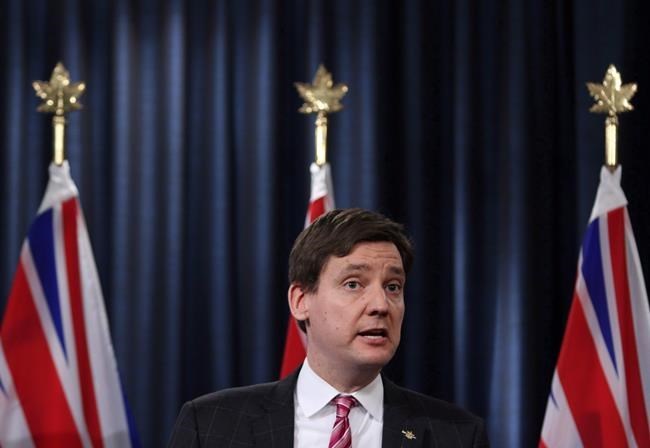 The New Democrat government has some valid reasons for changing the rules around the petition process allowing voters to fire MLAs mid-term.
The New Democrat government has some valid reasons for changing the rules around the petition process allowing voters to fire MLAs mid-term.
But if they had deliberately set out to make it look as suspicious and self-serving as possible, they couldn’t have come up with a better scenario than the one played out Tuesday evening.
At 6:10 p.m., a package of changes to B.C.’s recall process passed 44-38, as the NDP and Greens outvoted the Liberals after debate was curtailed by order of the government.
It came just days before the official time period opens for recall campaigns against MLAs. (It starts 18 months after an election.)
The one MLA likely to face a recall effort is Attorney General David Eby in Vancouver-Point Grey, where a tax revolt is percolating, specifically over the new school tax on high-end homes that is kicking in.
There have been protests, rallies, a recall website is taking names for volunteers, there’s even a countdown clock ticking off time until it can start.
Which makes it more than awkward that Eby is the minister who introduced the new restrictions. His amendments make recalling an MLA even more challenging than it already is.
That leaves Eby open to charges that his bill could save his own job.
In a cooler political climate, there’d be a case to be made for the changes. The same financing restrictions put on political parties are being extended to recall campaigns. Disclosure and transparency requirements are upgraded. There’s even one small tilt in favour of recall proponents: Donations to defend an MLA count against the yearly limit, so they can’t take in extra money.
But the overall impact makes recall an even longer shot than it already is. Interested third parties separate from the MLA and the recallers can spend just $5,000 over the 60-day campaign.
More restrictions and requirements mean more chances to be disqualified. And there are no limits on volunteer labour, which Liberals say allows the NDP open-ended use of union volunteers.
For the conspiracy-minded, there’s also a new one-shot rule. The first person to get a recall campaign against an MLA certified by Elections B.C. closes the door against all others in that riding.
The change was recommended by officials years ago. But Liberals say that could result in a fake campaign registering just to freeze out legitimate ones, then going dormant.
In more tranquil times, there would be a reasonable debate about the changes.
But they’re introduced by a minority government that has one less seat than the opposition. They passed a week before recall season opens with the attorney general as a prime target. And they arrive in the midst of continuing resentment about the referendum rules.
The opposition had asked for a ruling from conflict of interest commissioner Paul Fraser about Eby’s situation: introducing a bill that could affect him personally.
Fraser replied just hours before the final vote. He declined to rule, but only because there’s no campaign yet, so the question is “premature.”
He said: “Unless and until a recall is initiated, the questions you pose do not give rise to a live issue.”
The Liberals may try again next week.
That conflict non-ruling came hours after the government served notice in the morning that it wanted the bill passed by evening.
Limiting debate usually happens toward the end of a session, to clear logjams. Not with three weeks still to run.
After hours of accusations that it’s all “brazen, hypocritical and manipulative,” the argument concluded.
So the attorney general might be the first test case of legislation that he wrote himself. The conflict of interest commissioner looks to be expecting complaints about it, and the changes were pushed through the house by decree.
One test of fairness is to flip the picture and imagine a Liberal government jamming this past an NDP Opposition.
They would be in a seething rage.



